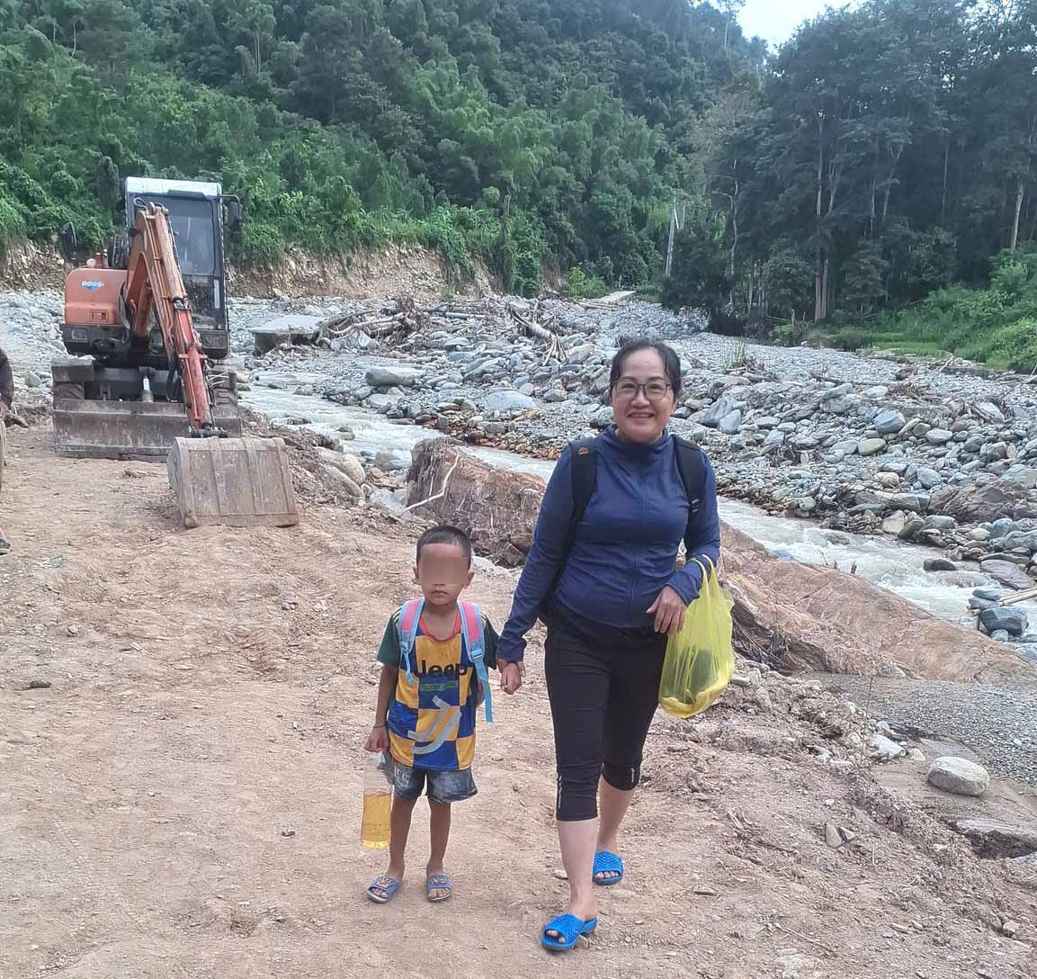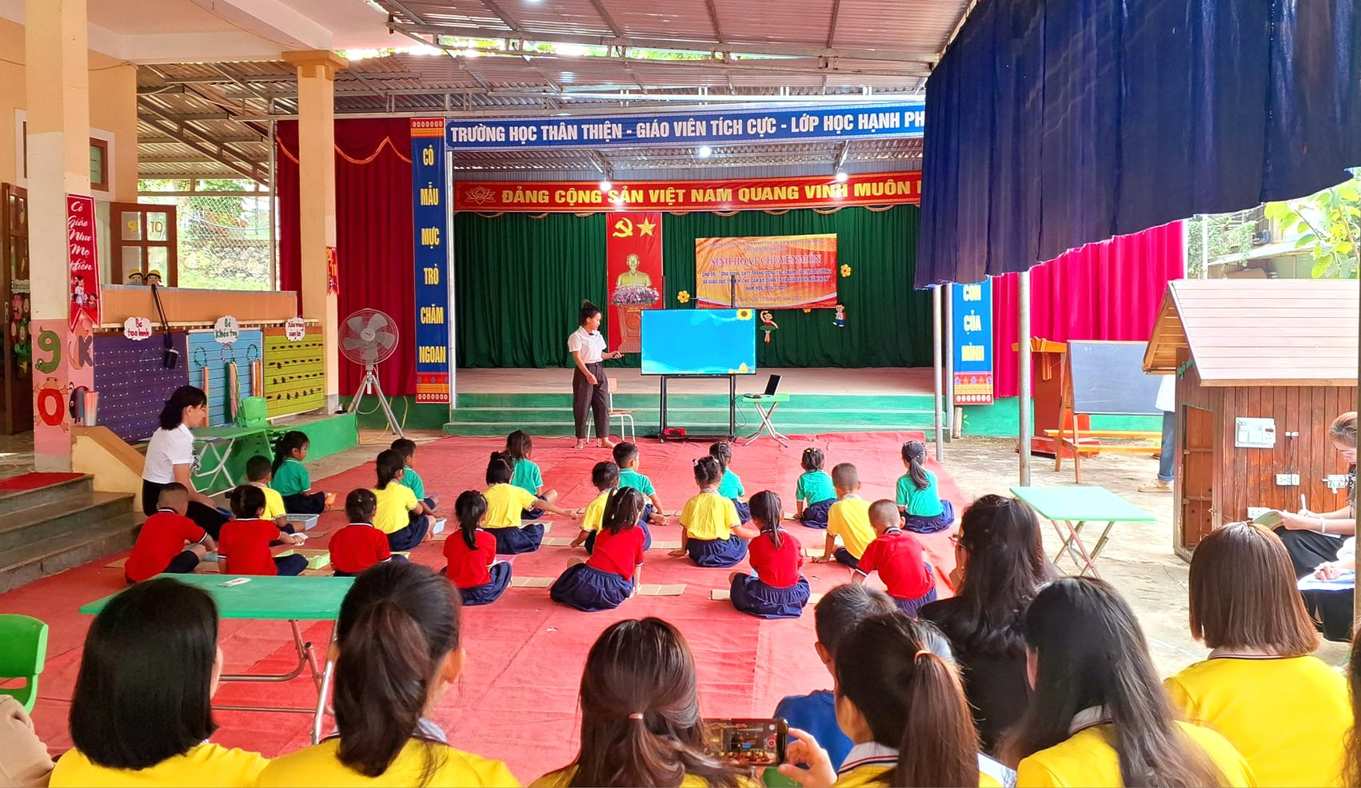The journey to school

On November 19, sharing with reporters, Principal Nguyen Thi Hang said that Mai Son Kindergarten, Nhon Mai commune, is located in the border area of Nghe An, one of the particularly difficult areas of Nghe An province.
The school currently has 7 class groups with 175 students. Of these, 170 are children of ethnic minorities, 112 are from poor households. The school has 20 staff, teachers, employees, and 14 teachers in charge of classes. The roads are so difficult that most teachers have to stay in boarding schools to stay in the village and class.

In recent years, consecutive storms and floods have severely damaged the school's access road. Many sections of rocks and soil have collapsed, streams have risen, and some places have been destroyed, making it a difficult challenge for teachers and students to go to class. The newly graduated teacher Xen Thi Thanh Huyen, when taking up the assignment for the first time, described the feeling of "going to the battlefield", because the route was long, slippery and dangerous that she had never imagined before.
Not only is the roads difficult, but language barriers are also a big problem. According to teacher Hoang Thi Lan, Vice Principal, Mong children mostly speak Mongol at home, so when they come to class, teachers have to teach them in small steps, communicate slowly so that they can gradually get used to Vietnamese.
On the other hand, if the teacher is not persistent, many children can easily drop out of school and follow their parents to work far away.

There was a time when a school was completely eroded after the flood. The school and the government must encourage parents to take their children to the main school, a distance of 5-7km. Despite the hardship, many parents still carry their children to class every day because the school offers a meal of 8,000 VND per child per day, helping them have more nutrition.

After the flood, many parents let their children stay home from school because of the long distance, and the teachers crossed the forest and crossed the stream to each house to campaign. In class, teachers meticulously make items and toys for children from recycled materials. The school lacks equipment, so many outdoor playground items are done with the cooperation of parents. Despite their poverty, the people here are very hard-working, accompanying teachers to improve the learning environment for their children.
Students are good children
Despite their hardships and difficulties, teachers Xen Thi Thanh Huyen, Lo Thi Diu, Lo Thi Sen, Nguyen Thi Thu Thao, Kha Thi Tam, Chuong Nhat Linh... still persistently stick to school and class. They all consider schools as a second home, students as children, and are tired of their profession even though they have to travel a dangerous distance on school days.

The biggest wish of teachers at Mai Son Kindergarten is to have more fully invested facilities and repaired school roads to ensure the safety of students and teachers. They also expect support policies for children in remote areas to be increased, so that they have more favorable learning conditions.
"As long as the road is less difficult and the school roof is more solid, we will feel more secure on the journey of sowing words in the midst of a thousand" - Ms. Lo Thi Diu confided.

According to Principal Nguyen Thi Hang, the most worrying thing at the moment is the hardship of going to school for both teachers and students. She said: Most of the children in Nhon Mai are children of the H'Mong ethnic group, poor households account for a very high proportion. The roads were severely damaged after the flood, many students had to walk 5 to 7km to get to class. There are days when parents have to carry their children across the stream and slope to get to school. Seeing that scene, we teachers both love and care.
According to her, a school that was completely eroded at the beginning of the school year was a big shock. The school must encourage parents to bring students to the main school, despite the long distance.
"Luckily, parents are having a hard time. Just as the school provided 8,000 VND per day for the children, parents immediately took their children to school because they wanted them not to be disadvantaged," Ms. Hang happily shared.
From the difficult reality of the school, Ms. Hang expressed her wish:
"We hope the State will continue to invest in facilities for schools in remote areas, especially traffic routes to ensure the safety of students and teachers. If the policy of supporting children in disadvantaged areas is increased, they will have more opportunities to study".











